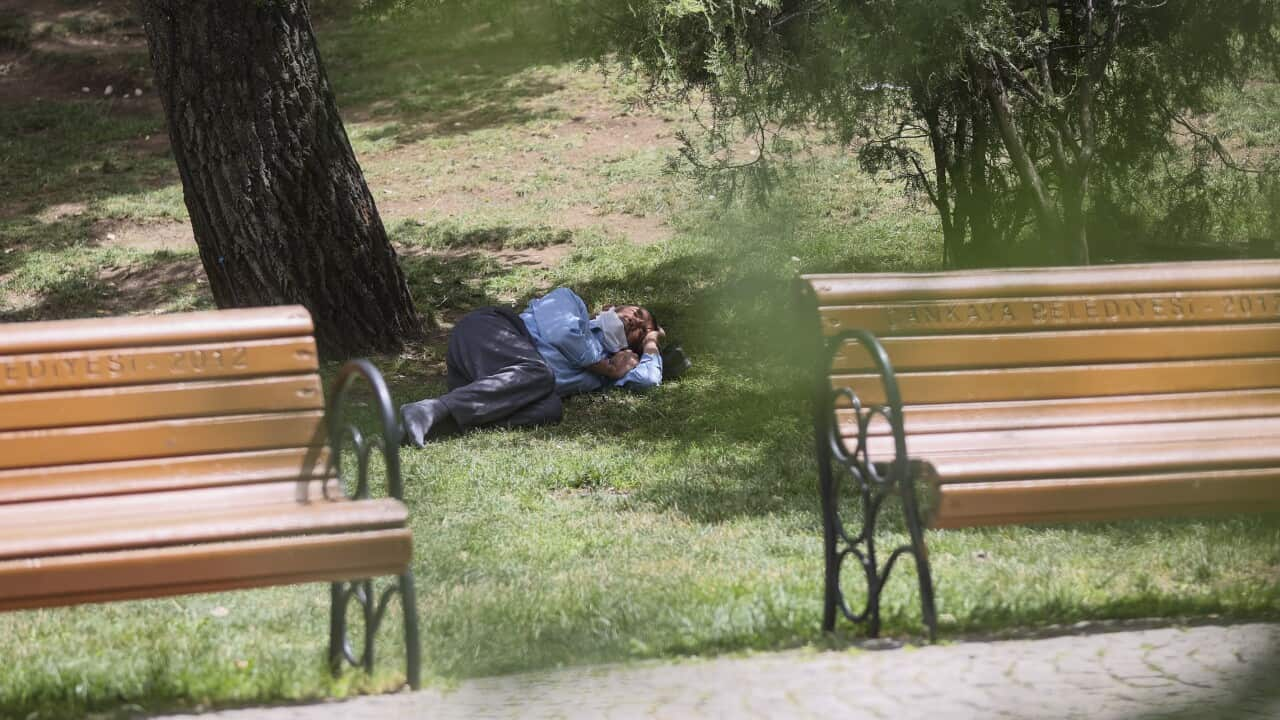As temperatures climb in Australia and around the world, researchers are warning that warmer nights are quietly eroding our sleep — with effects that could ripple through our health and wellbeing.
New international research led by Flinders University sleep experts analysed more than 165 million nights of sleep data from more than 317,000 users of sleep-tracking devices.
The analysis found that when night-time temperatures climbed from the global median of 12C to 27C, people lost an average of 15 to 17 minutes of sleep.
While that might not seem like a lot, researchers found a far sharper effect when looking at the chances of getting too little sleep.
On hotter nights, the likelihood of sleeping less than six hours increased by about 40 per cent.
Sleep is 'essential' for good health
"Sleep is essential for physical and mental health, and our findings show that high temperatures are quietly undermining this fundamental biological need," said one of the study's lead authors, Bastien Lechat, a research associate at the Adelaide Institute for Sleep Health.
"This isn’t just about our comfort, it’s about our cognition, mood, immune function, and long-term overall wellbeing."
Sleep deprivation has been linked to depression, mood changes, cardiovascular disease and impaired cognitive function.
It's also been linked to an increased risk of accidents and various other health issues, co-lead author Barbara Toson told SBS News.
"So it's not just about the discomfort that you have that night and the following day, it's the cumulative effect that it will have on your condition, mood, immune function, and long-term well-being," she said.
The findings show heat-induced sleep loss is impacting people of all ages and backgrounds across various regions and demographics, she said.
How to safeguard sleep
The obvious methods include air conditioning, fans, breathable bedding and leaving windows open to allow in a breeze. It can also be helpful to close sun-facing windows and blinds during the day to prevent bedrooms from heating up.
Sleep experts also suggest drinking water regularly and avoiding caffeine, alcohol and heavy meals before bed.
On a societal level, there are a number of ways to adapt and protect sleep, said Danny Eckert, a senior researcher on the paper.
"Urban design, housing, and public health strategies such as using heat-resilient housing designs and urban cooling strategies, such as green roofs, tree planting, and reflective building materials could help," he said.
Disproportionate impact on less affluent populations
One limitation of the study was its reliance on data from costly sleep-tracking devices, which are more prevalent in wealthier countries, Toson noted.
As a result, lower-income populations were likely underrepresented.
There's strong existing evidence that climate change hits poorer and more vulnerable communities hardest, exacerbating existing inequalities.
"It certainly affects those populations in a disproportionate way," Toson said, pointing to a lack of access to tools like air conditioning and cooler bedding.
Last year, analysis by the Australia Institute found that extreme heat poses a greater threat to outer-urban and rural areas of the country, where vulnerable populations — including older people, those with chronic health conditions and people on lower incomes — are more concentrated.
Data from the Australian Institute of Health and Welfare shows that extreme heat remains the leading cause of weather-related hospitalisations in Australia.
Looking to the future
As the planet warms and nights grow hotter, researchers say the impact on sleep, and its flow-on effects for public health will only become more pronounced.
"Obviously, we would love to see an improvement on the policies that overall tackle global [climate] change," Toson told SBS News, adding that improvements to urban design, housing and green space will also be important considerations.
The take-home message, she said, is that this is something "that will affect us and will affect everyone."
For the latest from SBS News, download our app and subscribe to our newsletter.

